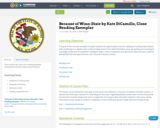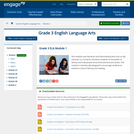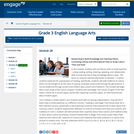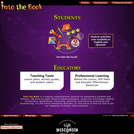
This outlines the 2-day close reading exemplar developed by Student Achievement Partners.
- Subject:
- Arts and Humanities
- Material Type:
- Lesson Plan
- Date Added:
- 11/11/2012

This outlines the 2-day close reading exemplar developed by Student Achievement Partners.

This material contains 5 incomplete tongue twisters.Student will complete each line by adding the same letter. Students practice saying the tongue twisters in pairs and/or with the instructor. Second activity has fishing vocabulary with missing first and last letters and matching definitions.

This module uses literature and informational text such as My Librarian Is a Camel to introduce students to the power of literacy and how people around the world access books. This module is intentionally designed to encourage students to embrace a love of literacy and reading.
Find the rest of the EngageNY ELA resources at https://archive.org/details/engageny-ela-archive .

In this module, students will use literacy skills to build expertise—using reading, writing, listening, speaking, and collaborative skills to build and share deep knowledge about a topic. This focus on research intentionally builds on Module 1, in which students explored the superpowers of reading. Specifically, students will seek evidence of culture, which can be thought of as the story of a group of people constructed through the generations; it can be evidenced through ancient and modern-day customs and traditions. The module will begin with a class study of the culture of Japan: Students will read Magic Tree House: Dragon of the Red Dawn, a book set in ancient Japan, paired with Exploring Countries: Japan, an informational text about modern Japan.
Find the rest of the EngageNY ELA resources at https://archive.org/details/engageny-ela-archive .

The "Into the Book" web site is designed to help elementary students practice eight reading comprehension strategies through playful interactive activities. The site focuses on eight research-based strategies: Using Prior Knowledge, Making Connections, Questioning, Visualizing, Inferring, Summarizing, Evaluating and Synthesizing. "Behind the Lesson," the teacher area of the site, provides information, lesson plans and other resources for teachers.